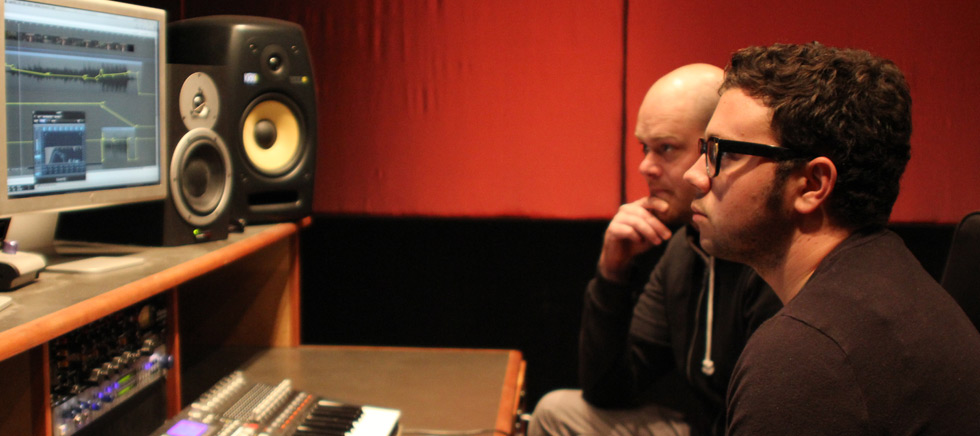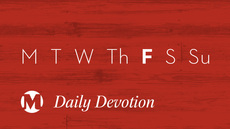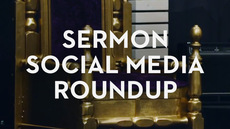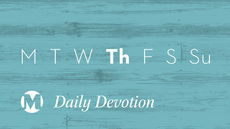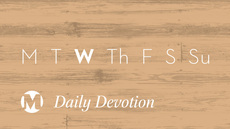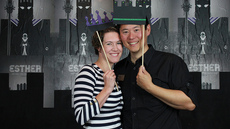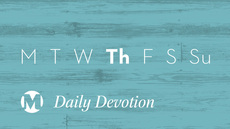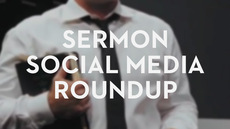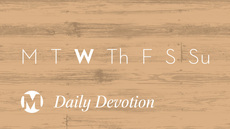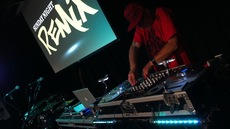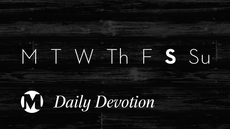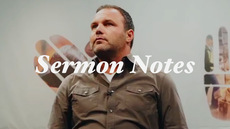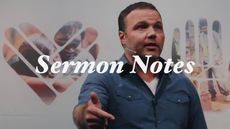Love the Esther film score (i.e. the background music) to the trailer and prologue? We’re making them available here for you as .mp3s. Happy Tuesday.
We also grabbed some time with the guys who were responsible for those compositions: our sound guys, Sam Stewart and Gabe Martinez. Sam has been our lead audio producer for six years, capturing sounds and composing scores at the church, and Gabe (who also plays drums for the band Ghost Ship) joined him last year.
Download the score for the trailer Download the score for the prologue
Mars Hill: How did you end up scoring music for a church?
Sam Stewart: Being a composer on staff at a church is a very interesting job. You don’t find this trade anywhere else really.
I grew up in a home of musicians. Both my parents were full-time musicians (along with most of their siblings and parents at some point), and my mom was a choir director. So music was not really an option; it was more of a way of life. As a teenager, I started deviating away from the clear-cut Christian music and discovered my love for bands like VAST, Smashing Pumpkins, Depeche Mode, etc. I finally discovered Tooth & Nail Records as a junior in high school, and it was a godsend, literally. I started tinkering with music in my garage and living room and finally got into recording on my own.
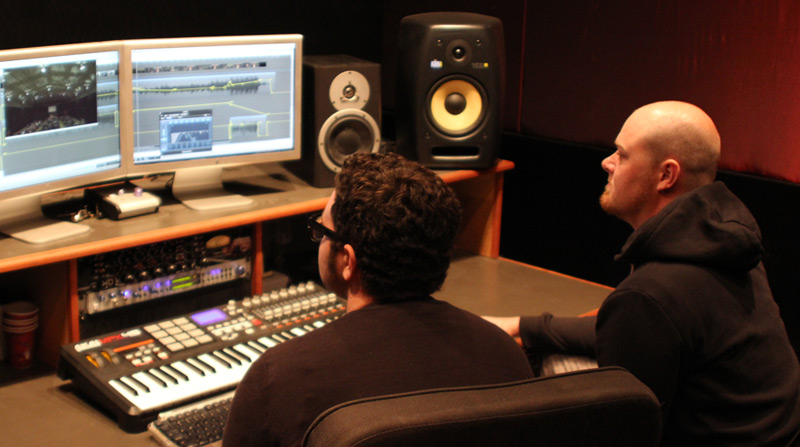
About six years ago, a friend told me Mars Hill was starting up a video team and needed a composer and asked what I was doing musically. I had never composed, but was stoked to give it a try. So I volunteered to help in whatever ways I could. I had no previous experience in using Macs, Logic, Pro-Tools, or anything. Mars Hill handed me a Mac and gave me a week to learn all the software. The first project that was given to me was the intro for the Rebel’s Guide to Joy sermon series. It all worked out then, but now that I look back, I think it sounds awful.
To date, I have done probably over 100 compositions for Mars Hill videos. I am super thankful for God’s grace in all of this.
MH: How does film scoring connect with Jesus?
Gabe Martinez: Film scoring is all about helping tell stories. As Christians, our goal is to tell the true story of the Bible, and how it all points the person and work of Jesus Christ. So with scoring videos for the church, we’re just trying to use music to help tell the story of Jesus clearly. God is the chief Creator, and as his image bearers, we get to reflect him using the creative gifts he’s given us. It’s a great honor to worship Jesus by making music that helps tell his story to our church and beyond.
MH: What do you think about as you are writing these scores?
SS: As a composer, I always want to see the video first in its most completed form. The audio is responsible for the overall tone of the video and adds emotion. Video can tell people what to think; music can tell people how to feel when they think it.
MH: How do you come up with what you want each score to sound like?
SS: The visuals should dictate what the score should sound like. Everything that happens in the video should trigger a sound or an idea. For example, in the Esther prologue, you see Xerxes as an embryo, then a baby, then he’s a young man, an adult, and eventually he towers over everything as the king. There’s a moment in the video where his eyes open and that right there is a perfect moment to bring in something big like the percussion. We pretend that everything in the video is an instrument.
MH: How does the collaboration between you two work?
GM: It varies. I think first we like to immerse ourselves in the visuals, the narrative, and tone of the piece as early as possible. Scoring involves having a vision for what people should be feeling during any given scene, so we try to talk through the piece, and nail down the feel and flow that the music should have. From there, we just start writing ideas, often separately. A lot of the time, one of us will come up with an idea, and the other will help tweak it or improve on it. Sam’s great at taking an idea I might come up with, and knowing exactly what other instruments or elements it needs to complete it. I find extremely helpful to collaborate like that. Musicians are not often the most objective critics of their own work, so continually running ideas by each other and challenging each other’s work really helps us come up with a much higher quality score.
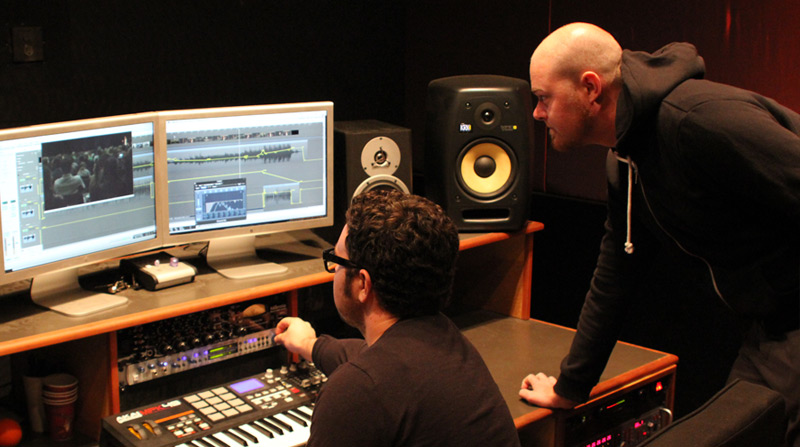
M: Did you have any inspiration while creating the Esther score? Inception maybe?
SS: Yeah, whenever somebody hears big brass blaring right now, they think Inception. (And they should—Hans Zimmer killed it on that score.)
But honestly we really try not to pick out other songs and model our scores after anything else. If Inception was an inspiration, it was more subconscious for us after listening to it and everything else that we listen to daily. The Gladiator soundtrack comes to mind for me in the same subconscious way as Inception. In the Gladiator soundtrack there are tons of female vocals, which after listening to for years, probably inspired the idea of a female vocalist on this project.
MH: What’s your favorite part about the Esther score?
GM: Definitely the ways score builds from the reveal of Xerxes to the end. It was a lot of fun working on the pounding drums and percussion. Sam had the great idea to add a female vocal in at the end, which I think brings it together and heightens the weight and emotion of the video.
MH: What do you think about people listening to scores while they work? Does the Tron: Legacy soundtrack equal productivity?
SS: A lot of people view instrumental as music without a message. What it really is is music without an explicit message. It does have a message—it’s just up to the listener to decide what that message is.
I think God really loves music himself (look at the massive book of Psalms) and wants us to worship him with music. It’s a beautiful thing, it penetrates our souls, and there is something very special about that. I believe people enjoy being walked through the various emotions and inspiration that music can impress on on us, I’d argue more quickly and effectively than other art forms.
I know if I am having a bad day, there are certain songs I choose to listen to or not listen to on my way home from work. That said, you definitely don’t want to idolize music as it can greatly affect our mind and soul. The cool thing is God loves music: he designed it and made us capable of making and enjoying it, even if it’s must a mix for your road trip.
MH: At Mars Hill, we always use original sounds and scores for our videos. Why is that?
SS: There are Scriptures that say, “Sing to the Lord a new song.”
From that we know that God really loves his role as the Creator of everything (just read Genesis 1), and he loves his glory and he loves being worshiped. He loves being the Creator so much that he made us in his image with the ability to create art ourselves. He loves seeing new art, music, video, even well put-together spreadsheets made for his glory.
The goal is not to just copy culture—it’s to generate new culture. So, as Christian artists we never need to copy anybody else’s work or generate creativity based on our own individualism. Instead, we can create new art with the gifts God’s given us that glorifies him freely, that reflects his glory and superiority as the ultimate Creator—and he loves it.
What this means is that, instead of Christians removing themselves from non-Christians culture, we can define culture ourselves. This slices through cultural boundaries that try to segregate “Christian” culture from any “other” culture. This is why I have a hard time with some work by Christians that seems too often to just take an idea someone else has made and re-branding it with a Christian theme. There is music that glorifies God, and there’s music that doesn’t. As an artist, what are you going to do with your God-given ability to create? That’s the only question.
